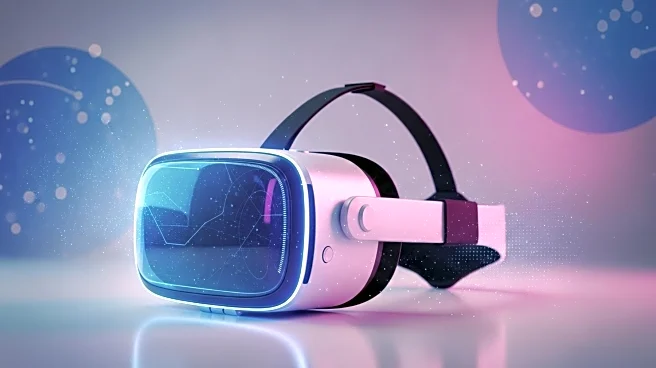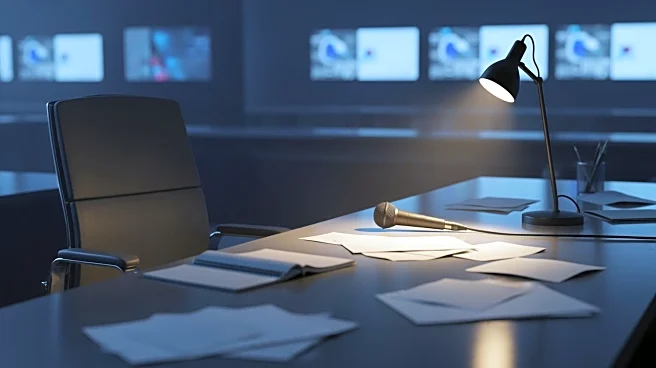What's Happening?
Recent research has identified a rare but real phenomenon where users feel 'stuck in virtual reality' after removing their VR headsets. This sensation, known as proprioceptive-disconnect, occurs when the brain's model of body position in space is altered by VR experiences. The study conducted by the University of Chicago explored how VR can temporarily distort proprioception and memory, leading to users misremembering real-world object locations after VR exposure. The research highlights potential safety risks, especially in scenarios like training emergency personnel using VR replicas of real spaces. The phenomenon is temporary, typically fading within hours, but underscores the need for careful VR design to prevent such side effects.
Why It's Important?
The findings are significant as they reveal potential safety and usability risks associated with VR technology, which is increasingly used in various sectors, including training and education. As VR becomes more prevalent, understanding these side effects is crucial to ensure user safety and effective application. The research suggests that millions of VR headset users could experience these effects, emphasizing the need for further study to mitigate risks. Industries relying on VR for training must consider these findings to avoid costly mistakes and ensure accurate real-world application of skills learned in virtual environments.
What's Next?
The study's authors call for more research into VR side effects, particularly in scenarios involving perceptual manipulations like altered body structure or object properties. Future studies should explore the impact of VR exposure duration and intensity on side effects. As VR technology evolves, developers and researchers must collaborate to refine VR experiences, minimizing potential risks and enhancing user adaptation to real-world environments post-VR use. This ongoing research will be vital in shaping safe and effective VR applications across various industries.
Beyond the Headlines
The phenomenon of feeling 'stuck in VR' raises broader questions about the nature of reality and perception. It challenges our understanding of how immersive technologies can alter human cognition and perception. As VR technology advances, ethical considerations regarding its impact on mental health and reality perception will become increasingly important. This research contributes to a growing body of knowledge that will inform future VR design and usage guidelines, ensuring technology enhances rather than disrupts human experience.









